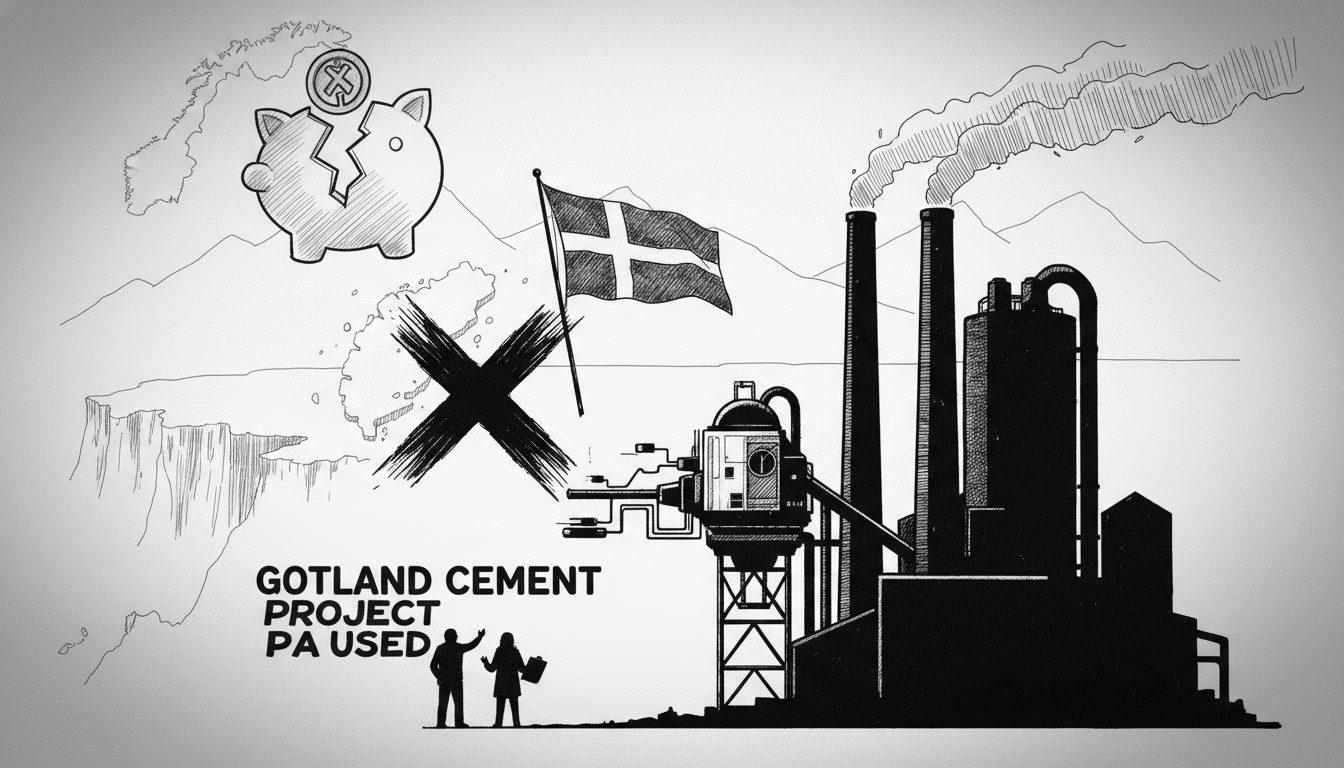Heidelberg Materials has halted its major carbon capture initiative at the Slite cement factory on Gotland. The company confirmed it cannot proceed without continued government support. Karin Comstedt Webb, deputy CEO of Heidelberg Materials Sweden, stated the project lacks sufficient conditions for realization in Sweden. The decision represents a substantial setback for the company's climate transition ambitions.
The cement producer sought 7.9 billion Swedish kronor from the Swedish Energy Agency. Officials determined insufficient funds existed within the Industrial Leap program's budget framework. The agency's decision explicitly noted available resources cannot match the requested amount. This funding rejection forces immediate suspension of the carbon capture development.
Heidelberg Materials had targeted 2030 for operational carbon capture technology. The timeline aligned with a new power cable connection between mainland Sweden and Gotland. This infrastructure would secure increased electricity demands from carbon capture operations. Both projects now face uncertainty following the funding decision.
What does this mean for Sweden's climate goals and cement industry? The paused project threatens multiple environmental and economic objectives. Cement production accounts for approximately 7% of global CO2 emissions. Carbon capture technology represents one of few viable paths to decarbonize this essential industry.
The company warns reduced investment in carbon capture could weaken its competitive position. Sweden might become more dependent on cement imports with potential supply chain vulnerabilities. International cement transport generates additional emissions, potentially offsetting environmental benefits of reduced domestic production.
This situation reflects broader challenges in heavy industry decarbonization. While governments establish ambitious climate targets, funding mechanisms often struggle to match technological ambitions. The Gotland case demonstrates how budget constraints can directly impact emission reduction timelines.
Similar carbon capture projects face parallel challenges across Northern Europe. High capital requirements and uncertain returns create investment barriers despite clear environmental benefits. The Swedish decision may influence how other Nordic countries approach industrial decarbonization funding.
Local implications extend beyond environmental concerns. The Slite factory employs numerous Gotland residents and contributes substantially to the regional economy. Project suspension could affect long-term job security and industrial development on the island.
The funding rejection raises questions about Sweden's ability to meet its climate commitments. Heavy industry transformation requires substantial investment in emerging technologies. When support mechanisms prove inadequate, emission reduction timelines become increasingly unrealistic.
Next steps remain unclear. Heidelberg Materials must decide whether to seek alternative funding sources or revise project scope. The company might explore European Union funding mechanisms or private investment partnerships. Meanwhile, cement production continues with conventional methods and associated emissions.

